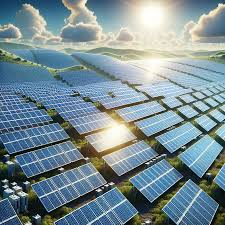Generation

SEFA Commits €6m to Burkina Faso Solar Plant

The Sustainable Energy Fund for Africa (SEFA), managed by the African Development Bank (AfDB), has committed €6 million to finance an 18-megawatt solar power plant in Dédougou, western Burkina Faso. The investment marks a significant step toward reducing energy poverty and advancing sustainable development across the Sahel region.
The financing package, announced at a signing ceremony in Paris, includes a €2.5 million senior concessional loan and a €3.5 million reimbursable grant. Dutch development bank FMO also co-financed the project, reflecting rising private sector interest in West Africa’s renewable energy sector.
Meanwhile, as one of Burkina Faso’s first independent power producer (IPP) projects, the Dédougou solar plant is set to reduce energy imports, lower electricity costs, and expand access to reliable, affordable power, particularly in underserved rural areas. Under a 25-year power purchase agreement (PPA), national utility SONABEL will buy plant-generated electricity.
“This project is a milestone for Burkina Faso and the broader Sahel region,” said Dr. Daniel Schroth, AfDB’s Director for Renewable Energy and Energy Efficiency. “It shows how solar power can drive inclusive and sustainable development while improving regional energy security.”
In addition, Qair Africa, the project developer, delivered a 24 MW solar plant in Zano in 2023. The company continues to scale operations across the region. “This second project reflects our commitment to accelerating the energy transition in Burkina Faso and beyond,” said Qair CFO Abdoulaye Toure. “We thank SEFA and FMO for their confidence in our vision.”
The Dédougou project forms part of Burkina Faso’s national Desert-to-Power roadmap, AfDB’s flagship initiative to install 10 gigawatts of solar capacity and connect 250 million people across 11 Sahelian countries by 2030. With only 20% of rural households currently electrified, the plant promises tangible economic and social impact, including job creation and reduced fossil fuel reliance.
Furthermore, Qair has integrated a robust Environmental and Social Management System to ensure responsible development. Beyond Burkina Faso, Desert-to-Power projects are advancing in Mali, Niger, Chad, and Senegal, positioning the initiative as a key pillar in Africa’s clean energy future.
By blending concessional financing with private execution, the Dédougou project reinforces a growing consensus. Africa’s energy future depends on scaling supply sustainably, inclusively, and with long-term resilience.












